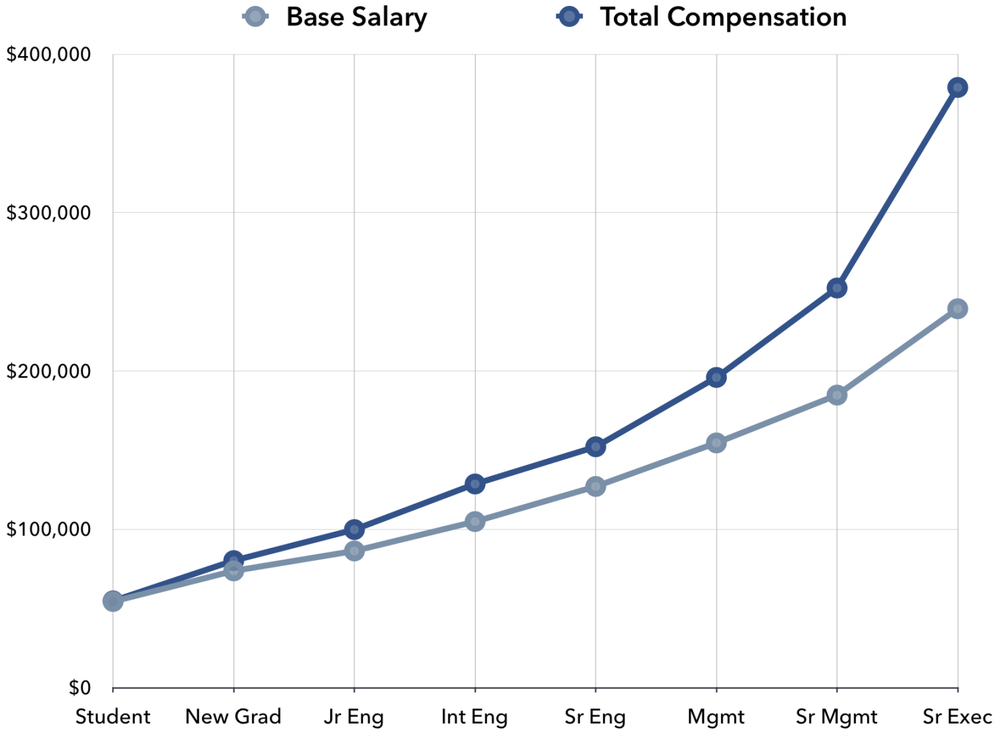
Many people have an irrational fear of heights or the sky, and a career in engineering may be the perfect solution. Which engineering careers are best? Let's find out! Here are the top-rated engineering jobs. These sectors are expected to grow 20% by 2020. This article will explore the career options for a biomedical, electronic, and naval engineer.
Biomedical Engineers
Biomedical engineering is a combination of engineering principles and the medical and scientific disciplines. They develop technology and products to aid patients. A biomedical engineer may also create software and hardware to improve the quality life for patients. You can choose to earn your bachelor's or graduate degree in biomedical engineer depending on what field you are interested in. For biomedical engineering students, it is important to take high school science and math classes. You may also find useful courses in computer programming and mechanical drawing.
Biomedical engineering has many job opportunities. This field includes designing artificial organs and body parts. Others develop medical equipment and test drugs. Biomedical engineers also design and install medical equipment. They evaluate their effectiveness and report their findings to physicians, scientists, and clinicians. Regardless of the exact nature of the work, biomedical engineers are among the best engineering jobs for the future.

Electronic and electrical engineers
It is predicted that the demand for engineers in electrical and electronic engineering will rise significantly in the future. New technologies will require them to design distribution systems that can connect these new technologies. Not only will they be designing and building new gadgets, but electrical engineers will also need to upgrade power grids in their countries. The same goes for electrical engineers who will need to automate various production steps. These professionals will have bright futures if they choose to specialise in one of the above fields.
Career prospects for electrical and electronic engineers are good, and they can start their career as fresh graduates. These engineers can work for global companies that have research and development facilities here in the UK. They can also be sent to other countries, or even industries. With the growing demand for electronics and devices, engineers in the UK might be able to find work abroad. Engineers can choose the career that suits them best, with so many possibilities in the field.
Marine engineers
If you're looking for a career that combines a passion for the ocean and a desire for solving problems, a marine engineer may be the perfect choice. Engineers can not only design or build ships of every size, but they also oversee construction and testing. One of the best things about being a marine engineer, is the diversity of projects they are involved in. These are the top engineering careers for the future.
Due to the advancement of alternative energy sources and ship design, as well as oil platform work, the demand in marine engineers is expected to grow faster than the national median over the next 10 years. These industries will generate thousands of jobs and require skilled professionals. Despite anticipated job growth, the industry will be smaller than other professions. There are many reasons to be a marine engineer.

Naval architects
Today, naval architects are one of the most sought-after engineers. Naval architects can work on many different projects and also for the classification societies. These societies oversee the design and construction shipbuilding. Other opportunities in maritime engineering include sales and marketing, equipment procurement, and more. The many skills gained in the industry can be transferred to other industries, including research and development. Naval architects might want to continue their education and pursue a career consulting, which offers engineering guidance as well as project management support to clients.
A naval architect's lifestyle is determined by the area and domain where they work. The first few year of an engineer’s career is spent learning their skills, increasing exposure to a variety of projects, as well as attending relevant conferences, industry conclaves, and other activities. Engineers also read renowned engineering journals and continue their professional development to ensure that they are always up-to-date. The first few years of learning the nuances and trade are critical. It is worth investing in as much knowledge as you can.
FAQ
Which engineering option is best for girls
Girls are always looking for an environment that will teach them how to create a better world for themselves. Engineering is not just for guys, they should know. Engineering can enable them to be successful women and make a positive contribution to their families and society.
Engineering is a great career choice for young women because it allows you to learn new skills and develop knowledge that could lead to a rewarding job. It gives her confidence and independence.
It allows her the opportunity to make a significant impact on people's lives as well as the environment.
This website was created to encourage girls in engineering to apply to college. We want them to see the beauty of engineering.
We hope you enjoy the site and find it helpful. If you have any questions, please don't hesitate to contact us.
What does a Chemical Engineer do?
To develop chemicals, products, technologies, or processes, chemical engineers must combine math, science and engineering.
Chemical engineers can choose to specialize in areas like petroleum refining or pharmaceuticals, food processing, agricultural, textiles and paper, mining, metalurgisty, and power generation.
They work closely alongside scientists and researchers to solve difficult technical challenges.
What does a typical day in the life of an engineer look like?
Engineers often spend their time working with projects. These projects may involve developing new products or improving existing ones.
They could be involved in research projects that aim at improving the world around them.
They may also be involved in the creation of new technologies, such as computers, phones, and cars, planes or rockets.
Engineers must use their imagination and creativity to complete these tasks. Engineers must think outside of the box to find innovative solutions to problems.
They will be required to sit down with their ideas and develop them. They will also be required to test their prototypes and ideas with tools such as laser cutters and CNC machines, 3D printers and laser cutters, computer-aided designs software and other equipment.
Engineers need to communicate well to convey their ideas to others. They must write reports and presentations to share their findings with colleagues and clients.
They will need to use their time efficiently in order to do the maximum possible work in the least amount of time.
No matter what kind of engineering you choose you must be creative, imaginative and organized.
Which engineer earns the most?
Software engineers would be the best answer because they code for computers. Software engineers also have the freedom to choose what type of project they would like to work on. Software engineers can work anywhere, but most prefer to work at technology companies like Google or Microsoft.
Do I need special qualifications to study engineering?
No. All you need are good grades in your GCSEs. Some universities require that applicants achieve certain academic achievements before they can be accepted. Cambridge University, for instance, requires applicants to earn A*-C grades (in Maths, English Language or Science)
If you do not meet these requirements, you'll need to take additional courses in order to be prepared for university entrance tests.
You might also need to take additional maths/science subjects and a language course. These options can be discussed with your school's guidance counselors.
Statistics
- Job growth outlook through 2030: 9% (snhu.edu)
- 14% of Industrial engineers design systems that combine workers, machines, and more to create a product or service to eliminate wastefulness in production processes, according to BLS efficiently. (snhu.edu)
External Links
How To
How to Use An Engineering Ruler
Engineers use engineering rulers to measure distances. Engineers have been measuring distance since ancient times. Around 3000 BC, the first measurement device was invented.
While rulers still exist in modern times, their use has been greatly modified. A metric ruler is the most popular type of ruler. These rulers have a marking in millimeters (1 mm to 0.039inches). The most common shape of metric rulers is rectangular. They also come in many sizes. Other rulers may include graduations, millimeters and centimeters. For example, 1 cm equals 2.54 mm.
Engineers will not be using traditional rulers. They would use a digital version, which measures in millimeters. It functions in the same way as a regular digital scale but has markings that correspond to different length units. Learn more about them here.